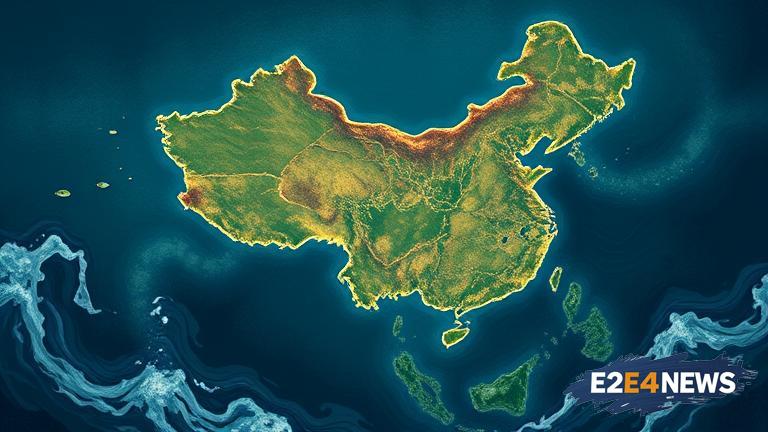US Representative James Comer has recently sent a letter to the Pentagon, inquiring about the extent of China’s deep-sea exploration and its potential implications for national security. The move comes as China has been increasingly active in exploring and mapping the world’s oceans, sparking concerns among US lawmakers and defense officials. Comer’s letter seeks information on the Pentagon’s intelligence gathering capabilities regarding China’s deep-sea activities, including any potential threats to US interests. The lawmaker’s inquiry also touches on the issue of China’s growing presence in the South China Sea, where the country has been constructing artificial islands and deploying military assets. The US has long been critical of China’s actions in the region, which are seen as an attempt to assert dominance over the strategically important waterway. Comer’s letter is part of a broader effort by US lawmakers to scrutinize China’s military expansion and its potential implications for global stability. The US has been seeking to counter China’s growing influence in the region, including through the deployment of naval assets and the strengthening of alliances with regional partners. China’s deep-sea exploration efforts are seen as a key component of its broader strategy to become a major maritime power, with the country investing heavily in advanced technologies such as underwater drones and submersibles. The US is concerned that China’s deep-sea activities could be used to gather intelligence on US naval operations or to disrupt critical underwater infrastructure such as cables and pipelines. Comer’s inquiry also raises questions about the potential for China to use its deep-sea capabilities for military purposes, such as the deployment of underwater mines or the conduct of covert operations. The US has been working to improve its own deep-sea capabilities, including through the development of advanced underwater sensors and unmanned systems. However, the country still lags behind China in terms of its investment in deep-sea technologies, sparking concerns about the potential for a gap in US capabilities. The issue of China’s deep-sea exploration is likely to remain a major concern for US lawmakers and defense officials in the coming years, as the country continues to expand its maritime presence and develop new technologies. The US will need to continue to invest in its own deep-sea capabilities and to work with regional partners to counter China’s growing influence in the region. Ultimately, the issue of China’s deep-sea exploration highlights the need for the US to remain vigilant and proactive in addressing the challenges posed by China’s rising military power. The US must continue to prioritize the development of advanced technologies and to strengthen its alliances with regional partners in order to maintain its position as a major maritime power. As the situation continues to evolve, it is likely that US lawmakers such as Comer will remain focused on the issue, seeking to ensure that the US is taking all necessary steps to address the potential threats posed by China’s deep-sea activities.
